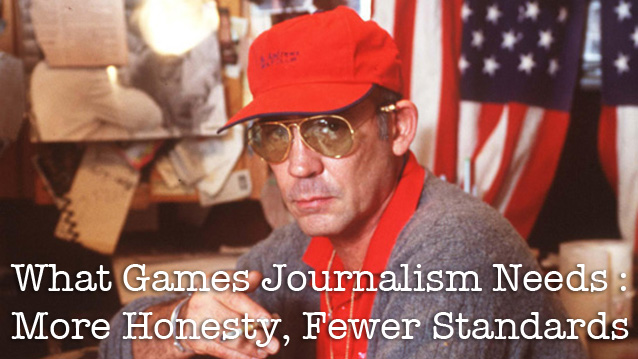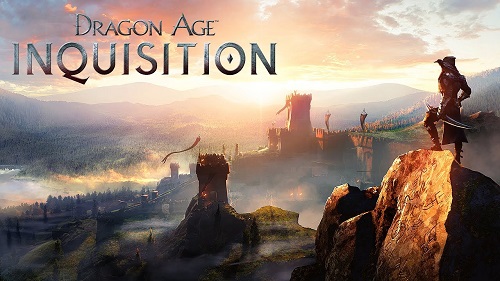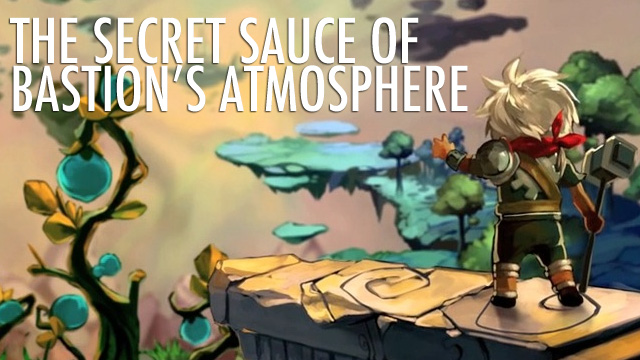


In 2010, television reviewer Alan Sepinwall, made a cameo appearance in the Community episode “The Psychology Of Letting Go.” Sepinwall is the biggest name in television criticism, credited with popularizing the most common form of TV writing, the weekly episode review. He's also been a champion of Community, a cult and critical hit that's struggled in the ratings. This is a clear-cut conflict of interest (indeed, Sepinwall has acknowledged it as a mistake). If it took place in video games, it would have set off a month of soul-searching, anger, screeds about corruption, and more. An extremely vocal contingent of fans and even some critics would consider Sepinwall everything wrong with the industry. But it wasn't in the video game industry. It didn't spark any major controversy. It was treated as the slight mistake it was, then forgotten.
Over at Kotaku Australia, David Rayfield, a former music writer (as I'm also a television critic) makes a similar point about that medium. Behavior that would be treated as shocking proof of corruption is the norm there. But I disagree with his conclusion—that game writing is in good shape because of the screaming hordes demanding perfect objectivity—for a few different reasons. Game writing has issues, but if you compare it to other entertainment journalism, those issues seem to be proverbial mountains made out of molehills.
 The paroxysms of rage and paralyzing insecurities are, at the least, exhausting, and at most, may be driving game writing into narrow forms. Instead of circling the wagons around idealized concepts of integrity, I think it's worth examining games and game writing in a wider cultural context. This will let us forgive the supposed missteps, like Sepinwall's, and be able to focus on the potentially major ones.
The paroxysms of rage and paralyzing insecurities are, at the least, exhausting, and at most, may be driving game writing into narrow forms. Instead of circling the wagons around idealized concepts of integrity, I think it's worth examining games and game writing in a wider cultural context. This will let us forgive the supposed missteps, like Sepinwall's, and be able to focus on the potentially major ones.
A few recommendations:
We should acknowledge that games are entertainment. This is not to say that video games can't be important—after all, movies and novels and plays are all entertainment, and very few people consider those irrelevant. Rather, it's an acknowledgment that we're in or around the industry because we enjoy it, find it meaningful, want it to succeed, and love certain parts of it. Behaving as though gaming is as important as politics, and needs to be covered in the same way just doesn't work. If we can say “we're here because we love games,” we can talk about them and our role in a healthier sense.
Imagine this scenario: a major game publication asks the lead designer of a major military shooter to review another company's new shooter. This would be treated as a massive conflict of interest, because the two games are treated as competitors. I've seen Giant Bomb's Alex Navarro, a former Harmonix employee, say that he wouldn't review a “competitor's” game. But if we treat games as a medium that we all wish to see at its best, competition becomes friendly. The market is improved and grown.
Does this sound far-fetched? It's not—it's common in book reviews. A novelist will review a theoretically competitive novel, or an expert in, say, Roman History, will review a colleague's book that might even supplant his or hers as the dominant text on the subject. Why? Because the goal of having writing, knowledge, art, whatever you want to call it, is the dominant form of literary culture. Better books are better for everyone involved.
Actually, it's happened in gaming. It wasn't a review, but the most important piece of criticism in the last five years was Clint Hocking, designer of Far Cry II, writing on “Ludonarrative Dissonance In BioShock.” I'm not trying to say we should get rid of critics and replace them with designers, but rather, that by viewing the medium as essentially competitive, we do ourselves a major disservice. We're all in this together.
 Also, if we acknowledge that we're in entertainment, then the idea that it's somehow wrong to report on press releases, game announcements, or whatever, can stop being treated as if it's “bad” journalism. An announcement is the relevant news, so writing about it deserves no shame.
Also, if we acknowledge that we're in entertainment, then the idea that it's somehow wrong to report on press releases, game announcements, or whatever, can stop being treated as if it's “bad” journalism. An announcement is the relevant news, so writing about it deserves no shame.
However, we'd be better served by clearer delineations between news and criticism. One of the big differences between game writing and other media writing is that most of our publications do both business and criticism. Compare, say, Entertainment Weekly to The A.V. Club and the difference seems clear. Yet most video game sites have some combination of news, previews, reviews, and features, often written by the same people. (Also, previews are weird—I'm not sure there's anything comparable in any piece of media, like reporters regularly being sent to watch films before they're edited.) That's potentially confusing for both readers and writers.
We'd also be much better served if we didn't adopt a holier-than-thou attitude toward these ethics. A few weeks ago, Polygon posted a bit of news that was essentially a repackaged press release on the grounds that it was of potential interest to their readers. True or not, they were widely attacked and mocked for it. Why? Because they've built themselves up as something serious, special, and significantly better than anyone else. That's basically begging to have their behavior policed and then mocked for any kind of hypocrisy. Those kinds of high, perhaps even impossibly high, standards, also come from the same anxiety about game journalism not being any good, even when it often is. Relaxing those demands, on ourselves and others, would be healthy.
You may be thinking that if all my advice about relaxing these standards instead of tightening them is followed, what's to stop game journalism from becoming a corrupt free-for-all? The answer, I think, is in cultivating specific points of view. If our sites, our writers, our journalists each behave in a consistent fashion, with a specific writing style, then they can be trusted. A site like Rock, Paper, Shotgun, for example, cultivates a specific analytic, sarcastic, playful tone, which makes most of their work trustworthy in that it aligns with the quality of the rest of the site.
Or, take two very different Halo 4 reviews, an aesthetic-focused review from Simon Parkin in Eurogamer, or the mechanic-focused review from Simon Ferrari in Paste. Each of these is specific and has a strong enough voice that they earn the reader's trust in and of themselves. We don't need to see their official review guidelines in order to understand that the reviewers are honest, because the honesty shines through.
And one last thing: fuck the trolls.And one last thing: fuck the trolls. The class of people who believe that reviewers are bought and sold like cattle? Or the fanboys, who treat any slightly negative score of their preferred game as an insult? These people are not your audience. Their understanding of how reviewing works is so fundamentally flawed that you'll never be able to convert them en masse, and it's not worth trying. They may be loud, but comments can be deleted, and NeoGAF/Reddit ignored. The people who hate you should not dominate your discourse. They want game journalism at every level to be objective, to conform, to hate itself, and in the end, to be boring. I want game journalism to acknowledge that it loves games, to be subjective, to relax a little, and to be filled with distinct voices.




 10 Tips for Making Better PowerPoint Presentations with Office 2016
10 Tips for Making Better PowerPoint Presentations with Office 2016 The Secret Sauce of Bastions Atmosphere
The Secret Sauce of Bastions Atmosphere Sid Meier's Starships Guide: How to Pick the Best Wonders
Sid Meier's Starships Guide: How to Pick the Best Wonders How to locate and use the Water Pistol in MGS V: The Phantom Pain
How to locate and use the Water Pistol in MGS V: The Phantom Pain Call of Juarez: The Cartel Walkthrough Video Guide in HD
Call of Juarez: The Cartel Walkthrough Video Guide in HD